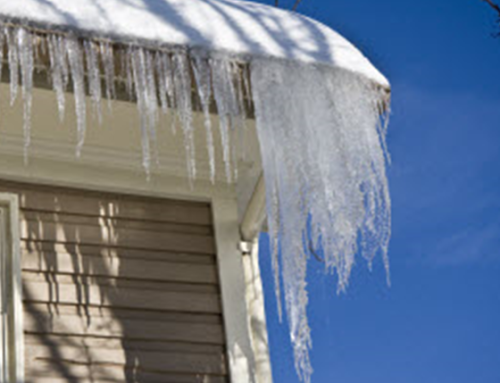This article was originally posted by Erie Insurance. The original article can be found here.
It’s been raining for hours or steadily for a few days. Are you prepared? Floods can occur within a few minutes or develop over several hours, causing devastating damage to your home or property. Your number one defense against any natural disaster, like flooding, is preparation.
Remember, your homeowner’s policy does not cover flood damage. You must purchase a separate policy. To help you protect your residence or commercial building, Erie Insurance has partnered with American Bankers to offer flood insurance. American Bankers is a premier “write your own” (WYO) insurer for federal flood insurance program. Call a local ERIE Agent today to find how you can obtain this valuable coverage.
It’s also important to know how to protect yourself by developing a flood safety plan. It’s important to know what to do before, during and after a flood.
Before a Flood
- Complete an itemized inventory of your personal belongings and store the information in a safe place such as a fireproof box or bank safe deposit box. If you’re storing it in your home, be sure to place the box in a secure location, away from potential water areas.
- Find out if you live in a flood-prone area from your local Red Cross chapter, emergency management office or local planning and zoning department.
- If you live in a flood-prone area, collect supplies such as plastic sheeting, lumber, tools and sandbags to protect your home from possible damage.
- Make a safety kit that contains a flashlight and extra batteries, battery-powered weather radio, extra food and water, first-aid supplies, canned food and a can opener, water (three gallons per person), extra clothing, and bedding.
- Plan a safety escape route in case you need to leave your home quickly.
- Watch for warning signs. Is it raining heavily? Is snow melting at a rapid pace? Are there concerns with rising rivers or tidal surges?
During a Flood
- During a flood watch, fill bathtubs, sinks, and jugs with clean water in case the water supply becomes contaminated. Move furnishings and valuables to the highest point in your home.
- Keep your car fueled, so that you’re ready to evacuate at a moment’s notice.
- When an evacuation is ordered during a flash flood warning, move to higher ground immediately.
- If time permits, turn off utilities: gas, electricity, and water.
- Never walk through floodwaters; even 6 inches of rushing can sweep you away.
- If your car stalls, abandon it immediately and move to higher ground. Two feet of water will sweep away most cars.
After a Flood
- Check for structural damage, loose power lines, gas leaks, foundation cracks, or other damage before entering your home.
- If you suspect a gas leak or smell gas, leave your home immediately and call the gas company from a neighbor’s phone or cellular phone. Don’t smoke or use candles or matches in your home until you’re sure there are no gas leaks.
- Be cautious when entering your home. If the door sticks at the top, it could mean your ceiling is ready to fall. Check your ceiling for signs of sagging before entering.
- Turn off the electricity. Even if the power company has turned off the electricity to the area, make certain your home’s power supply is disconnected.
- Drain your basement in phases, allowing the water level around your property to recede. Structural damage could occur if the water is pumped out too quickly.
- Watch for animals (snakes) that may have entered your home with the floodwaters.
- Check your sump pump periodically.
- Discard any food or medicine exposed to the floodwaters.
- Move things off the floor and run fans and dehumidifiers.
- Replace gas control valves on furnaces, water heaters, and other gas appliances that have been under water. Silt and corrosion from floodwaters can damage internal components and can cause an explosion or fire.
- Listen to your radio for information on assistance that may be provided by the state or federal government or other organizations.
- If you have well water, have the water tested before drinking.
- If mold is a problem in your home, you should promptly clean the area.
For more specific clean-up tips, resources, and information on purchasing flood insurance, visit these websites:



